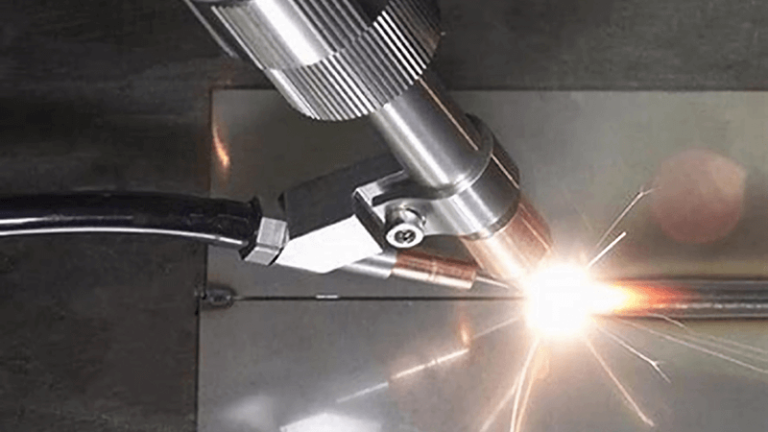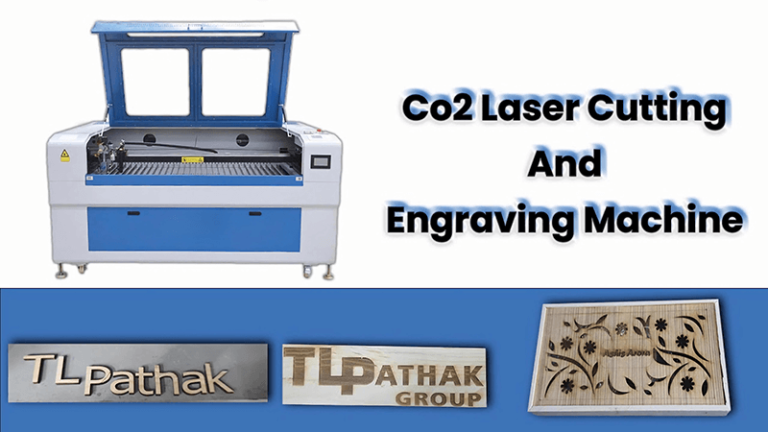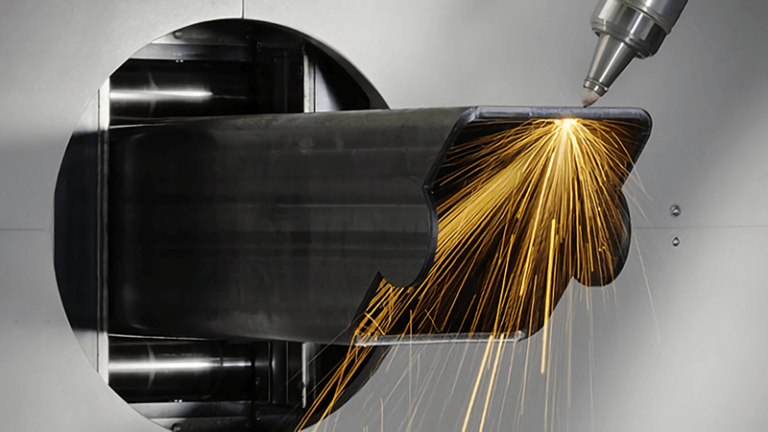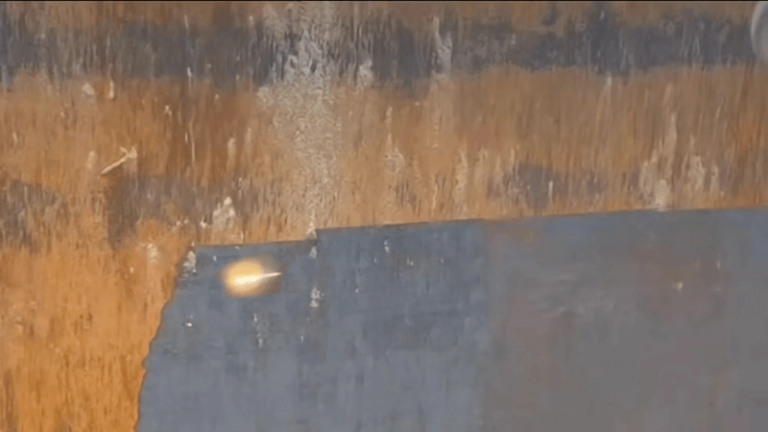If you've ever seen your motorcycle's silencer or handlebars turn reddish-brown with rust, you know that sinking feeling. It's ugly, damaging, and sometimes dangerous. Most people grab sandpaper or chemicals, but there's a faster, smarter way.
Laser cleaning machines offer a non-damaging, precise, and eco-friendly way to remove rust from motorcycle parts like handlebars and silencers.
Traditional rust removal methods can cause more harm than good. Sanding strips metal. Chemicals are messy. At Kirin Laser, I’ve seen firsthand how our laser cleaning machines restore rusty two-wheeler parts quickly and safely. Read on to learn how it works.
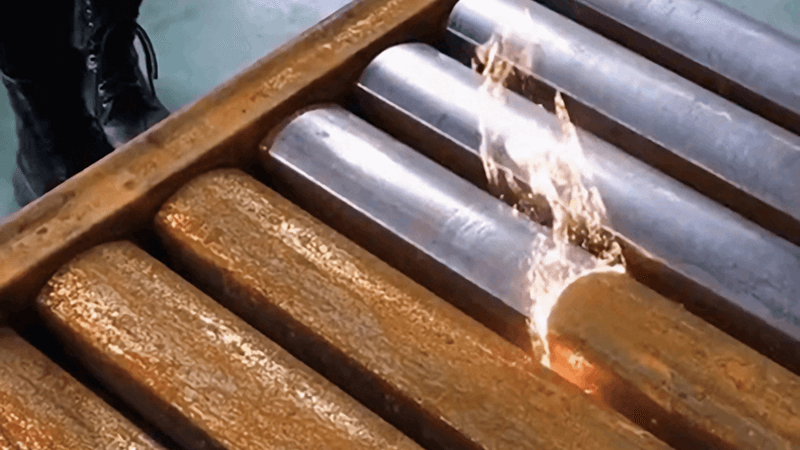
How to remove rust from silencer?
A rusted silencer isn’t just ugly—it can choke performance and compromise structure. Many riders try sanding or chemicals. But silencers are thin and curved. Abrasives wear down the material, and sprays often fail on tight curves. The result? More damage than repair.
Using a laser cleaning machine is the most efficient and safe way to remove rust from a silencer, preserving its structure while restoring a clean metal surface.
Why laser beats traditional cleaning
No abrasion, no thinning
Silencers are made of thin steel or alloys1. Sanding wears them down. But laser beams remove just the rust—nothing else. That’s because the laser targets the oxidation layer based on reflectivity and heat absorption. Bare metal stays intact.
| Method | Material Loss | Safety | Speed | Reusability |
|---|---|---|---|---|
| Sandpaper | High | Low (manual) | Moderate | No |
| Chemical sprays | None | Low | Slow | No |
| Laser Cleaning2 | None | High | Fast | Yes |
One customer’s story
A rider once brought in a vintage Royal Enfield. The silencer was fully rusted. He had tried sanding and even soaking it in vinegar—nothing worked. We used our 100W trolley-style laser cleaning machine. In under 15 minutes, the rust was gone. The bare metal underneath looked brand new—no repainting needed. He couldn’t believe it.

How to get rust off of bike handlebars?
Rusty handlebars aren’t just cosmetic. They compromise grip, feel, and rider safety. Most people try steel wool or acidic sprays, but they miss tight areas and damage the chrome. Is there a better way?
Laser cleaning restores handlebars by removing only the rust and leaving the rest untouched, even in tight corners or intricate welds.
What makes laser ideal for handlebars
360-degree precision
Handles are round, often chromed, and welded. A laser’s handheld nozzle allows me to move around the handlebar, hitting every edge and curve. The beam automatically adapts to surface angles, vaporizing rust without affecting chrome.
Controlled power levels
Our laser cleaning machines3 allow adjustable power—from 100W to 2000W. For thin materials like handlebars, I typically use 100W. That gives enough energy to remove rust, but not enough to heat or warp the metal.
| Feature | Laser Cleaning | Abrasives |
|---|---|---|
| Preserves chrome | ✅ | ❌ |
| No physical contact | ✅ | ❌ |
| Time to clean | 5–10 min | 30–60 min |
| Ideal for curves | ✅ | ❌ |
Eco-friendly process
No dust. No residue. No gloves or masks. Laser cleaning turns rust into gas, which is extracted by a built-in fume system. For a small workshop or even garage use, that makes things simple.
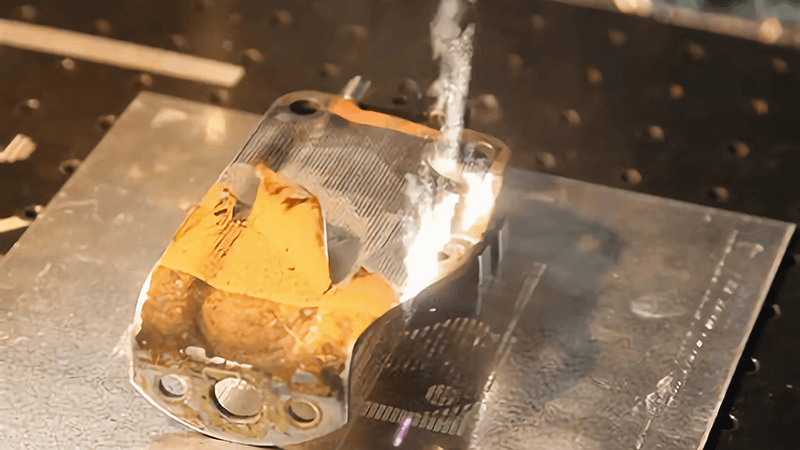
What is the best rust remover for exhaust?
The market is flooded with gels, pastes, sprays, and rust converters. But most aren’t ideal for exhausts, which have heat exposure, thin tubing, and complex welds. What’s the safest and most efficient method?
A laser rust remover is the best option for exhaust pipes, offering heat-safe, non-contact, and residue-free rust removal.
Breaking down why laser wins
Exhaust complexity
Exhausts include flanges, welds, curves, and tight bends. Rust collects in all those areas. Sprays drip off. Sanding can’t reach inside edges. But with a laser gun in hand, I can adjust angles, zoom into tight spots, and clean out crevices precisely.
No surface damage
Unlike acids or sanding that leave scratches or stains, laser cleaning simply evaporates rust. The surface underneath—whether it’s steel, alloy, or coated—is unaffected.
Built for heat-tolerant surfaces
Because exhausts reach high temperatures, chemical cleaners often leave behind residue that bakes on and corrodes further. Laser cleaning leaves nothing. Just clean, heat-ready metal.
| Rust Remover Type4 | Effectiveness | Surface Safety | Heat Residue | Application Time |
|---|---|---|---|---|
| Chemical Gel | Medium | Low | Yes | 30–45 min |
| Sandblasting | High | Very Low | No | 1–2 hours |
| Laser Cleaning5 | Very High | Very High | None | 10–15 min |
I’ve cleaned dozens of exhausts using our 200W portable unit6. Every time, customers are surprised that no repaint or grinding is needed. The pipe comes out clean, natural, and metallic—ready for the road.
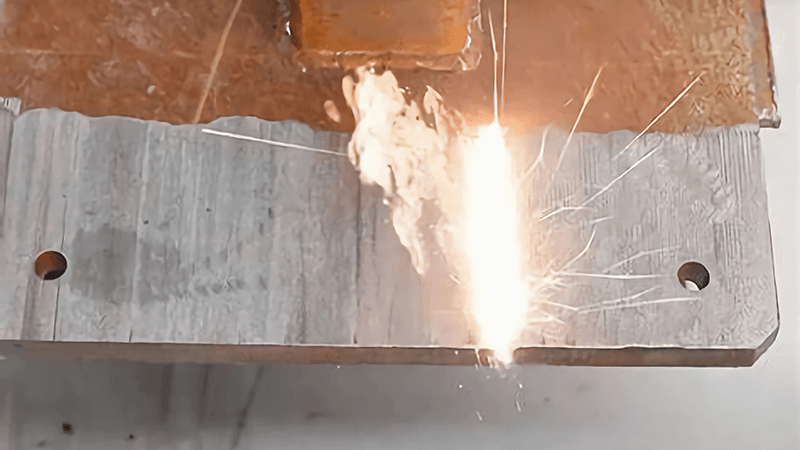
What is the most effective way to remove rust?
Every mechanic has their favorite method. But when we compare them all—manual, chemical, mechanical, or high-tech—one approach stands out in efficiency, safety, and finish quality.
Laser cleaning is the most effective way to remove rust, especially from complex or delicate metal parts like those on motorcycles.
Why effectiveness isn’t just speed
Factors that matter:
- Material safety: Does the method harm the base metal?
- Environmental impact: Are you left with waste, fumes, or runoff?
- Labor/time: How long does it take, and how hard is it?
- Result: Is the surface smooth and ready-to-use?
Laser cleaning7 checks all the boxes:
- Precise: No surface damage, even on thin metal.
- Fast: Small parts take under 10 minutes.
- Clean: No chemicals, no dust.
- Low skill required: After setup, operators only need to point and move the nozzle.
| Method | Speed | Safety | Cleanliness | Skill Needed | Residue |
|---|---|---|---|---|---|
| Sanding | Slow | Low | Dusty | Moderate | Yes |
| Chemical Sprays | Slow | Medium | Messy | Low | Yes |
| Laser Cleaning | Fast | High | Clean | Low | No |
Our Kirin Laser machines8 come in multiple power ranges. For motorcycles, I recommend our 100W or 200W portable units9. They’re easy to move, cost-efficient, and ideal for two-wheeler rust removal tasks.

Conclusion
Rust on a motorcycle can seem like the end of the road—but it doesn’t have to be. Laser cleaning10 offers a fast, safe, and clean way to restore silencers, handlebars, and exhaust pipes. I’ve used it countless times for customers, and every time, they’re amazed by the result. At Kirin Laser, we’ve made this technology accessible, portable, and effective for anyone serious about maintaining their machines. Whether you're a workshop owner or a weekend rider, laser is the future of rust removal.
-
Discover why thin steel or alloys are preferred in manufacturing for their durability and efficiency, especially in applications like silencers. ↩
-
Discover how Laser Cleaning can effectively restore metal surfaces without damage, ensuring longevity and quality. ↩
-
Explore this link to understand how laser cleaning machines can revolutionize your rust removal process with efficiency and precision. ↩
-
Learn about various rust remover types and their effectiveness to make an informed decision on the best method for your needs. ↩
-
Explore the advantages of laser cleaning, including its effectiveness and surface safety, to understand why it's a superior choice for rust removal. ↩
-
Discover how a 200W portable unit can efficiently clean exhausts without surface damage, offering a quick and effective solution for rust removal. ↩
-
Explore the advantages of laser cleaning, including its precision and environmental benefits, to understand why it's a top choice for metal surface treatment. ↩
-
Discover the features and power ranges of Kirin Laser machines to find the perfect solution for your rust removal needs. ↩
-
Discover why 100W or 200W portable units are perfect for motorcycle rust removal, offering mobility, efficiency, and cost-effectiveness. ↩
-
Find the best laser cleaning solutions and laser cleaning machine from Kirin Laser, clickinng to get your best product. ↩


